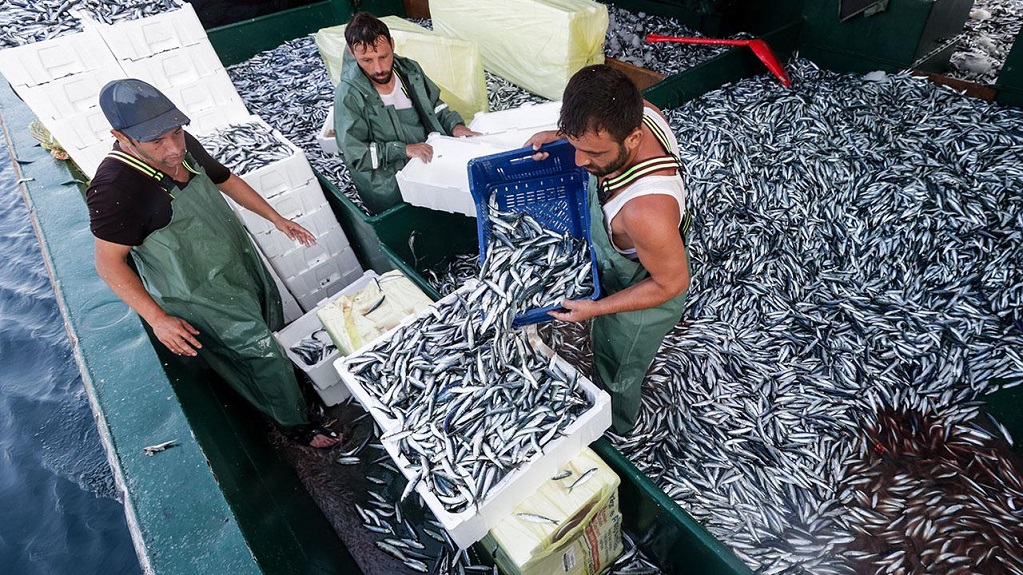In January-February 2023, 303 tons of European Anchovy fish worth 1 569 373 USD were exported from Turkey to 17 countries – announces the chairman of the Eastern Black Sea Exporters' Association, Ahmet Hamdi Gurdogan, according to Turkish media.
News
France leads the worldwide exports of Anchovy, followed by Belgium and Spain. Gurdogan drew attention to the variety of import nations and emphasized that, unlike last year, Anchovy sold in Sweden, Georgia, UAE, Lebanon, and Somalia.
According to Gurdogan, in the first two months of 2022, $109,628 worth of Anchovy was exported from Trabzon to Germany, Sweden, and Canada. The exports from Trabzon great by 17% compared to the last year, but fell short of the expected level. As he noted, Turkey places high hopes on exporting seafood.
85 000 tons of Anchovy can be caught in the territorial waters of Georgia annually. This is more than the yield of Russia, Ukraine, Bulgaria, and Romania combined. Within the Black and Mediterranean seas, Georgia only lags behind Turkey in the abundance of Anchovy resources.
Exploiting these resources is restricted and only 5 companies have the right to extract them until 2036. Journalistic investigation of Studio Monitori concerns this very topic.
Every year, the Ministry of Environmental Protection and Agriculture approves a quota, which stipulates the amount of fish allowed to be caught throughout the year. To fulfill the quota, in 2006, the government identified 5 winning companies by auction and granted them a 10-year license. After the expiry of the license issued for the first time in 2016, the fishing license of all five companies was extended until 2026. In November 2018, just 2 years after receiving the new 10-year licenses, four companies wrote to the government asking for license extensions until 2036.
In 2018, the head of the Fishery and Black Sea Monitoring Service was Doctor of Biology Archil Guchmanidze. He studied the requirements of the licensees, evaluated them to be harmful to the state interests, and sent a service card to the then Minister of Environmental Protection and Agriculture Levan Davitashvili. Guchmanidze explained why the government should not agree to the demands of licensees. Along with the extension of fishing licenses until 2036, the four companies also demanded the cancellation of license obligations. In particular, according to the 2016 government decree, they were required to produce combined food from 10% of the extracted resource, and canned food from 5%. In the letters of 2018, they demanded the cancellation of this article.
Despite the negative assessment of the head of the Black Sea Monitoring Service, the government fully satisfied the demands of the businesses.
The shareholders of the licensing company are related to the ruling Georgian Dream’’ party and Bidzina Ivanishvili's aunt, Ucha Mamatsashvili. Fishing licenses for companies with Georgian Dream links will be extended up to 2036 without an auction.
Archil Guchmanidze says that over the years, many international companies expressed their desire to fish in the Black Sea. “Many companies are interested. I myself had relations and correspondence with several of them. There was a Greek company, a Dutch company, and a very large Turkish group. The Dutch company wanted to create a strong scientific component, buy a scientific research ship, build a scientific research center, and start real research. Part of the money recovered from there was invested in fish breeding because fishing is a responsibility.”
The four licensing companies offered the government 20 million GEL in exchange for the extension of the licenses until 2036 - about 2 tetri license fees per 1 kg. of Anchovy. The former head of the Fishery and Black Sea Monitoring Department believed that this was much less than the real price. The government did not consider any of the arguments from the head of the Black Sea Department and continued the validity of the licenses for 20 million GEL.















